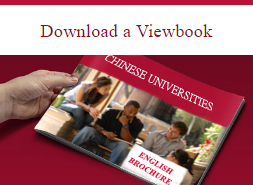Leading global scholars gather at SCUT to explore soft matter science

SCUT hosted over 150 academics from all over the world at the 2017 International Symposium for Soft Matter Science and Technology, which took place from April 18 to 19.
Top specialists from nearly 30 universities and research institutions presented their latest research across a wide range of topics in soft matter related areas, including physics, chemistry, material science and engineering.
Professor Yu Qijun, Deputy Secretary of the CPC SCUT Committee, attended the opening ceremony. He introduced SCUT’s recent progress in material science and polymer science in his opening remarks, and expected to see more communications and collaborations between SCUT and other institutions.
During eight sessions in two days, keynote talks from leading scientists of the US, China, Europe and Japan took focuses on five subjects: natural polymers and polymer hybrid, physics of polymer melts and solutions, supramolecular assemblies, functional and intelligent materials, as well as biological system.
The symposium was hosted by the South China Advanced Institute for Soft Matter Science and Technology (AISMST), a research platform established by SCUT in 2016 to bring together high profile academics worldwide to conduct frontier researches on soft matter and technology application.
SCUT to work with Singapore on smart city technologies

Vice President Zhu Min (right) meeting with Consul General Chua Teng Hoe (left)
Connected through the bridge of the Sino-Singapore Joint Research Institute, SCUT and its partners from Singapore will work closely on multiple scientific research missions, in particular concerning smart city technologies.
Chua Teng Hoe, Consul General of Singapore in Guangzhou, paid a visit to SCUT on April 19 to discuss strengthening cooperation with SCUT. He was received by Vice President Zhu Min at the Liwu Building of Science and Technology.
Zhu Min, after introducing SCUT’s progress in building the Sino-Singapore Joint Research Institute and the Guangzhou International Campus, put over that SCUT has stepped forward in urban-related research areas such as information security, urban planning, big data and driving security, which lay a foundation for the university to carry out joint projects with Singapore.
The rise of information and communication technologies has lifted “smart city” as an emerging urban development vision, and Singapore, according to Chua Teng Hoe, has marked smart city technologies as a key focus in the country’s scientific research agenda. He looked forward to seeing Singapore setting up collaboration with Guangdong province in this field.
Heads of SCUT’s Science and Technology Division, Office of Social Science Administration and International Office were also present on the meeting.
Delegation of University of Toronto Scarborough visits SCUT

A delegation of the University of Toronto Scarborough (UTSC), led by its Vice-Principal Bernie Kraatz, made a tip to SCUT on April 19. They were welcomed by SCUT Vice President Zhu Min at the Liwu Building of Science and Technology.
During the meeting, Zhu Min introduced to the guests about SCUT’s academic strengths and the progress of cooperation with overseas institutions, in particular with regard to the scheme of building the SCUT Guangzhou International Campus.
Zhu Min expected the two universities to carry out diverse cooperative programs in student training, faculty communication and scientific research. He also invited UTSC to join the new campus program as a partner.
Bernie Kraatz expressed his identification with SCUT’s ideas and manners of higher education. He believed that the two sides can work together in multiple areas based on each university’s academic strong points.
The delegation later paid a visit to SCUT’s School of Environment and Energy (SEE). After holding an academic lecture and, Bernie Kraatz sharing his current research and exchanged ideas with faculty members and students that were present on the session.
Established in 1964, The University of Toronto Scarborough is a satellite campus of the University of Toronto in Canada. With nearly 200 years of history, the University of Toronto is a leading public research-intensive university, which was placed by the QS World University Rankings at 32nd in the world and 2nd in Canada in 2016.
Alumnus Luo Ruibang among Forbes's 30 Under 30 Asia list

Forbes this month announced its 2017 edition of "30 Under 30 Asia" list, featuring 300 young innovators, entrepreneurs and leaders who are challenging conventions and making an impact in today’s world.
This is the second year for Forbes to publish the annual list, presenting 30 honorees for each of the 10 categories. SCUT alumnus Luo Ruibang, a 27-year-old genomics researcher, was included in "Healthcare & Science", a category identified by the list publisher as a force of young people that are "discovering new worlds, in our cells and outer space".
Luo enrolled in SCUT for bioengineering major in 2007, and was admitted to the first enrollment of the SCUT-BGI Genome Science Innovation Class in his second college year. He then started to practice as a genomics researcher at BGI, which is a leading genomic-sequencing institute at Shenzhen where he could learn from some of the world’s most remarkable and experienced scientists.
When he was still an undergraduate student in 2009, he published his research, "Building the sequence map of human pan-genome", on Nature Biotechnology as a co-first author. Over the past few years, he has done a series of extraordinary works in genomics that were published on premier international journals such as Science and Nature.
In 2014, Luo cofounded L3 Bioinformatics Limited, a Hong-Kong based company that aims to develop better computing technologies to make the analysis of big genomic data fast, accurate and easy, as well as to realize the value of such data for healthcare. He is currently also a postdoctoral fellow doing research on computational biology at Johns Hopkins University in the U.S.
















